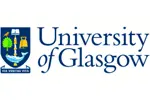About Dentistry, BDS - at University of Glasgow
The BDS curriculum aims to produce dental practitioners who are highly skilled, reflective and caring, and who are capable of making a major contribution to the health of the communities in which they will work.
The five-year programme is based on a comprehensive statement of intended learning outcomes that lists what you are expected to know and be able to do at each stage of the programme. There are four major themes to the teaching, which are integrated throughout the programme. The themes are
- Biomedical sciences
- Patient management and health promotion
- Clinical dental sciences
- Clinical medical sciences.
A blend of traditional and modern teaching methods will help you to learn what is required to become a competent dental practitioner. There is a strong emphasis on enabling you to reflect on your experiences and identify your own learning needs. You will be introduced to clinical studies in first year and there is early contact with patients. There is active encouragement, through teaching and participation, of the team approach to the provision of dental care.
Clinical skills are learned in modern laboratories before starting clinical practice in the Dental Hospital. In later years you will gain clinical experience in purpose-built outreach facilities in and around Glasgow and in more remote and rural communities.
Clinical experienceThroughout the programme you will have close contact with the teaching staff and senior students, which allows learning by example and peer review. Your clinical skills and judgement will improve with experience as you learn to become a more responsible clinician with each year of the programme.
Clinical dentistry teaching is also carried out in state-of-the-art clinical technique laboratories using simulated patient models. The clinical techniques laboratory, sedation suite and emergency training simulator facility significantly enhance the educational experience of our dental undergraduate students.
What academic support is available?Certain members of the academic staff have been appointed as advisers to BDS students. They will assist you with any problems, whether academic or personal, in a confidential manner.
You are also assigned a mentor for the duration of the BDS programme. You will meet with your mentor on a regular basis to discuss your work and progress. A portfolio is used to encourage reflection and to help you monitor your progress and achievements against specific learning objectives.
Can I study abroad?During the elective period of the programme, you will choose a topic which is studied in greater depth, either in Glasgow or elsewhere. Many students take the opportunity to travel abroad and the school provides organisational and limited financial support.
Can I take an intercalated science degree?You may have the opportunity to take a relevant BSc Honours degree in one of several life sciences. Intercalated degree programmes last for one or two years and are taken after either the second or third BDS year. On completion of the BSc degree programme, you will return to the BDS programme.
What research activities are undertaken?Research in the Dental School is divided into three themes: infection and immunity; community oral health; and biotechnology and craniofacial sciences. Within these themes, a wide variety of individual and collaborative research projects is undertaken. You will have the opportunity of becoming involved in research during your elective study in fourth year.
During vacations, there are opportunities for you to work on externally funded projects. If you choose to take an intercalated BSc (Hons), you are required to undertake a small research project, culminating in a dissertation. You are encouraged to undertake this work within one of the research groups at the Dental School.


